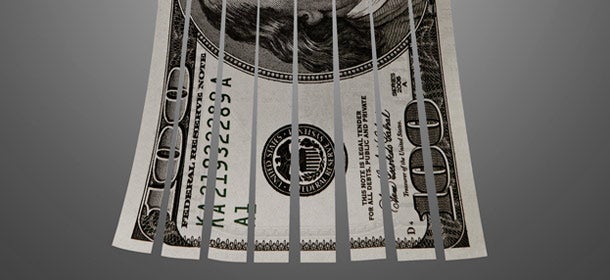
Die goldene Regel der Startup-Hauptstadt: vergeuden Sie nicht Geld
Goldene Regel des Geschäfts: Shareholder-Value zu erhöhen.
Goldene Regel zu investieren: billig kaufen, teuer verkaufen.
Die meisten Unternehmer kennen diese goldenen Regeln. Zu einem großen Teil, sie sind (oder sollte) offensichtliche und selbst offensichtlich. Sie sind "Regeln", weil sie den Grundstein für Business-Leitbildern, Ziele und Entscheidungen zu legen.
Gibt es eine weitere wichtige goldene Regel, die viele Unternehmer übersehen, speziell beim Start Unternehmer. Es vor kurzem Startseite mir in einer e-Mail von Mike Schroll, der Gründer der Startup.SC, ein Gründerzentrum South Carolina fuhr mit denen ich derzeit arbeite um mein eigenes Startup-Idee zu entwickeln. Späten Abend letzten Woche eins arbeiten, Ping"Posteingang Computer" mit seiner Single-Satz-Botschaft:
"Ich fordere Sie auf zu erreichen, was du tust mit weniger Kapital."
Zugegeben, war meine erste Reaktion offensichtlich sei. Natürlich sollten alle Unternehmen versuchen, mehr zu tun mit weniger. Aber als ich begann, meinen Vorschlag in der aktuellen Iteration zu prüfen, ich habe bemerkt, dass ich eine "perfekte" Szenario für mein Kapital-Raise-Fragen gebaut hatte, die war sehr hoch. Ich habe ein ehrgeiziges Ziel oder BHAG, aber ich war gefährlich nah an eine Falle, der viele Unternehmer in fallen treten.
Ich geschätzt, genau wie viel Geld ich brauchte, um erfolgreich zu sein.
Das Problem dabei ist, dass der "perfekte" Geldbetrag ein Trugschluss. Haben Sie eine einzigartige, revolutionäre und proprietäre Idee, kombiniert mit der richtigen Menge Geld steht es in der Tat eine deutlich bessere Chance des Werdens ein Erfolg. Aber die meisten von uns haben nicht diese Art von Idee - wir haben nur eine Idee-- und Investoren haben viele Investitionsentscheidungen und wollen in der Regel ihre Gefährdung um viele Start-ups zu verbreiten.
Letztlich, was Investoren sehen wollen und was Sie beachten müssen, ist die Menge an Geld benötigt, um zwei Ziele zu erreichen:
- immer Ihre Idee auf den Markt.
- wächst Ihr Kunde Basis so schnell wie möglich.
Da Kapital knapp ist, werden Start-Kapital, das auf etwas anderes geht verschwenderisch berücksichtigt. Zum Beispiel:
Personal
Das einzige, das für den Erfolg ist Personal erforderlich, um den Start ins Leben gerufen. Ingenieure und Programmierer sind teuer, und sie sind auch im Hinblick auf die Entwicklung ganzer minimale marktfähiges Produkt oder den Prototyp der das Geld Wert. Was nicht in Frage kommen, ist ein Gründer lukratives Gehalt.
Sofern Sie eine allgemein bekannte und begehrte Gründer sind (die meisten von Ihnen sind nicht), wollen die Investoren nicht wertvolle Start Kapital wird die Tasche Linie. Seien Sie bereit, um in Zeit und Schweiß, um Ihr Engagement zu zeigen, wofür Sie mit einer Investition belohnt werden.
Marketing und Werbung
Kunden-Anschaffungskosten ist ein wichtiger Aspekt für Investoren. Wenn Ihre Strategie nur Geld für Werbung aus Gründen Geld ausgeben, dann, Ihre Strategie zu überdenken. Annäherung an Ihren Return on marketing-Budget ist entscheidend, und zwar gibt es keinen Weg, um genau zu sein, demonstriert Ihr kritische Denken und das Verständnis ihrer Bedeutung werden machen Sie viel mehr glaubwürdig erscheinen.
Aufwand
Kostbare Start Kapital sollten nicht auf Dinge wie Büros, Möbel, Kickertische und Kaffeebars, ungenutzt bleiben, es sei denn, diese Dinge kritisch sind für die Beibehaltung der wichtigsten Talent. Es sei denn, Sie ein gefragter Gründer mit bestehende Partnerschaft mit etablierten Risikokapitalgeber sind, jedoch bereit sein, bootstrap Ihren Weg durch Entwicklung und starten.
Alles andere
Alles musste von legal, Buchführung, Utilities, um Hausmeister, beginnen muss auf ein absolutes minimum reduziert werden. Kein Gründer ist darüber hinaus in einem heißen Büro sitzen oder Clorox, die WC-Schüssel nehmen. Wenn Ihre US-Dollar nicht um Ihr Produkt zu erstellen und Kunden zu gewinnen, werden sie verschwendet.
Während dieses Konzept offensichtlich sein kann, habe ich persönlich für unzählige Unternehmer gesprochen, die Einführung von ihrer Idee mit ein komplettes Missverständnis zu visualisieren. Viele glauben fälschlicherweise, dass sie benötigen ein Google-Esque-Büro, unbegrenzte Urlaubstage und Vorteile, wenn in Wirklichkeit einen Rußwesen Block-Schreibtisch, Internetzugang und unerschütterliches Engagement eines ehrgeizigen Unternehmers wirklich alles, was Sie brauchen.
Besuchen Sie für weitere finanzielle Beurteilungen von Corliss-Gruppe-Online-Magazin unsere Facebook-Seite und folgen Sie uns auf Twitter @CorlissGroupMag.

 Log in with Facebook
Log in with Facebook 





